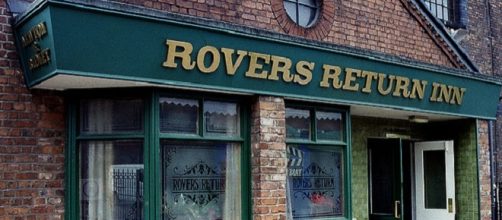It’s only a soap opera, it’s not real life. Try telling that to the experts behind a new investigation for the National Hydration Council (NHC). Their damning report highlighted that the characters portray an image of too much booze and not enough water being consumed on the sets of the UK’s leading soaps.
Report highlights worrying trend
After struggling through almost 3,000 minutes of national television, the NHC’s findings have been reported in an aptly titled report called “The TV Water Shortage”. They have spotted a worrying trend for alcohol, hot drinks and soft drink consumption to dominate such popular programmes as "EastEnders", "Coronation Street" and other UK dramas.
Besides the soaps, the study included British-made dramas and sitcoms set in the present time. Output shown on the terrestrial channels of BBC1, BBC2, ITV1, Channel 4 and Channel 5 was incorporated into the researchers’ remit, plus Radio 4’s iconic “The Archers”.
Prefer better TV role models
Their stated preference would be for the characters to set a better example to the fans, by encouraging them to instead keep hydrated with a healthy glass of water. Experts considered that the characters’ preferences for unhealthy drinks was “unacceptable” and “shocking”.
From the analysis of the drinking habits on screen, only around one in 20 characters opted for a glass of water, compared to over a third plumping for alcoholic beverages.
Hot drinks accounted for just under 50 per cent and a further 7% were fizzy pop or soft drinks.
Could impact authenticity of shows?
Whether the fact and the fiction can be separated without destroying the very essence of the working class images being illustrated remains to be seen. The fact that a large part of the storylines for both the BBC’s and ITV’s flagship ratings winners centres on public houses is hugely symbolic. Both “The Queen Vic” and the “Rovers Return” represent the hub around which the characters live their lives.
To dilute the habits of their regulars would seem perhaps a step too far, yet there is no denying the huge impact that the shows have on their television followers. With millions of diehard fans tuning in for every episode, the behaviour and habits of their favourite stars can’t fail to leave an impression.
The ban on smoking in public places has no doubt removed a large chunk of the potential health concerns for ‘neutral’ observers of TV soaps in that respect. Yet how many people would enter a pub in their real lives with the express intention of asking for a glass of water?
Opportunity missed
With health issues continuing to be flagged in general society, warning of the dangers from excessive alcohol and the obesity risks from increased sugar intake, the study does however raise a serious point. But is it the duty of entertainment shows to view the bigger picture and take the first step or should society act first, with the soaps then falling in line as a reflection of the changes?
Media psychologist, Emma Kenny believes in the former stance and has flagged up the failure of TV shows to positively influence the lives of their viewers.
The debate will no doubt rage on as to where the boundary is drawn between what is fact and what is fiction?

